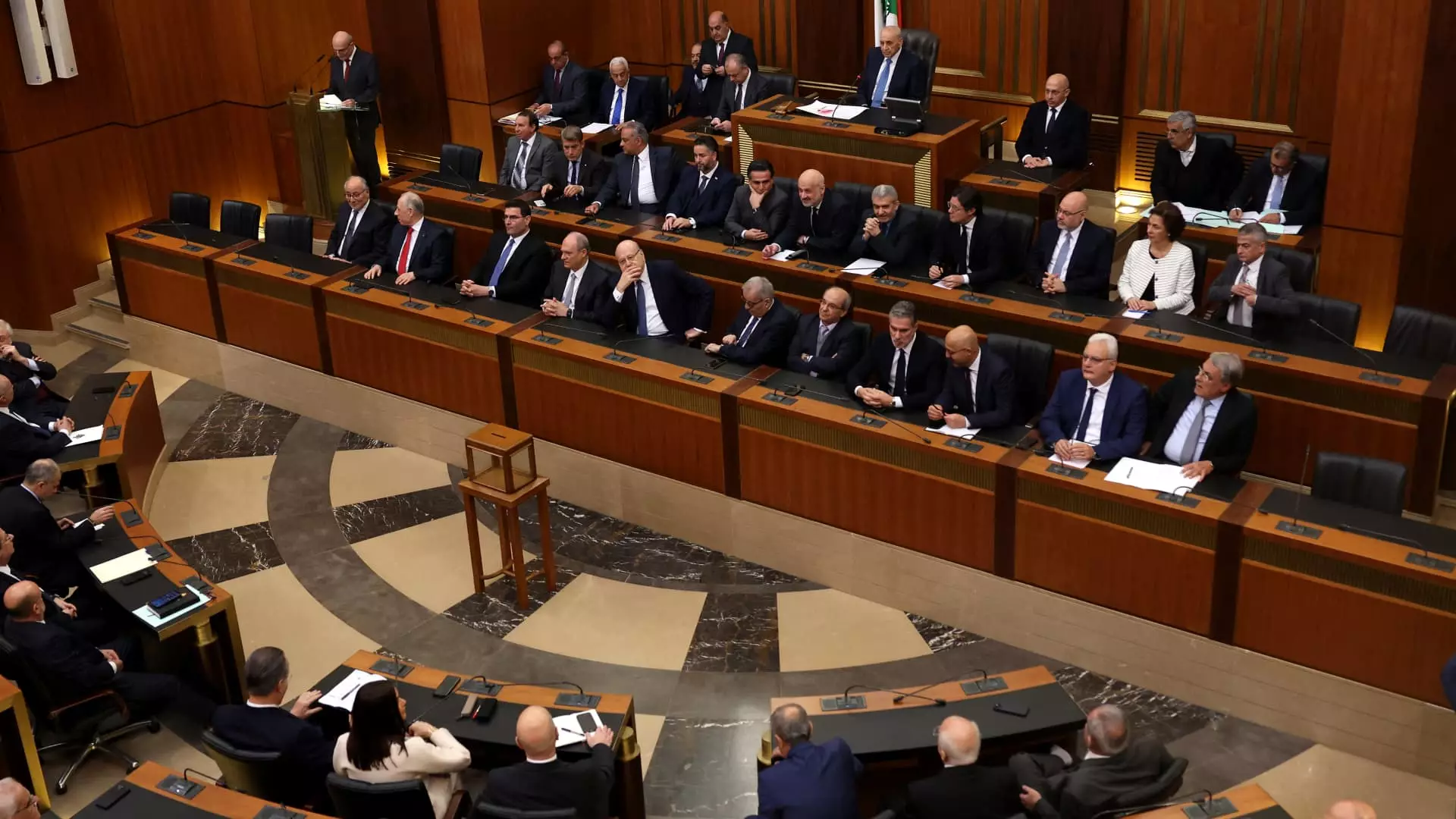On Thursday, Lebanon’s parliament finalized a significant decision by electing Joseph Aoun, the current army chief, as the new head of state. This pivotal move not only addresses the prolonged vacancy in the presidency since Michel Aoun’s term ended in October 2022 but also marks a notable change in Lebanon’s political dynamics. With Aoun emerging as a leader favored by Western powers, particularly the United States, this election reflects broader shifts in influence both within Lebanon and across the Middle East.
The election of Joseph Aoun signals a potential realignment of power in a nation often characterized by political fragmentation and sectarian strife. Traditionally, the presidency in Lebanon is reserved for a Maronite Christian, as part of the country’s complex power-sharing arrangement, which complicates decision-making processes. The months of stalemate and factional disputes leading to Aoun’s election demonstrate the entrenched divisions within Lebanon’s political landscape, which often stalls governance and reform.
Hezbollah, the Iran-backed Shi’ite political and militant group, has faced considerable challenges in recent years, particularly following the fallout from its involvement in the conflict against Israel. The devastating war and subsequent political developments have led to a perception of Hezbollah’s diminished influence. Aoun’s election also indicates a critical juncture where the long-standing power of the Shi’ite group’s influence is being questioned. This decline in prominence has created a vacuum that allows other forces, especially from Saudi Arabia and the West, to reassert their presence in Lebanon.
Joseph Aoun’s ascent to the presidency was facilitated by the surprising withdrawal of Suleiman Frangieh, a candidate long backed by Hezbollah, who ultimately endorsed Aoun. This shift highlights the fragility of Hezbollah’s political strategy and the realignment of alliances as external powers, such as France and Saudi Arabia, engaged in intensive diplomacy to create favorable conditions for Aoun’s election.
The newly elected president now confronts significant challenges, not least of which is the task of forming a functional government. With the country’s economy in dire straits due to a financial collapse that began in 2019, there is immense pressure on Aoun to catalyze governmental reforms and secure international support. Diplomatic sources indicate that the promise of international financial assistance, particularly from Saudi Arabia, hinges on establishing a stable government led by Aoun.
The task of appointing a Sunni prime minister, a prerequisite within Lebanon’s parliamentary framework, involves delicate negotiations amongst political factions that are often reluctant to cede control or influence over ministerial portfolios. Any delays in this process could further undermine public confidence in Lebanon’s political system, already battered by years of economic hardship.
Furthermore, Aoun’s election comes with external expectations, especially regarding the ongoing ceasefire between Israel and Hezbollah. As part of this agreement, the president is tasked with ensuring the military’s deployment in southern Lebanon, which demands careful navigation of both domestic and regional political sensitivities.
The implications of Aoun’s presidency extend beyond Lebanon’s borders, impacting regional power dynamics and geopolitics in the Middle East. His relationship with Washington and the encouragement from international allies signal a potential shift towards a more Western-friendly governance in a country that has, for years, been overshadowed by Iranian influence. The U.S. has maintained a longstanding policy aimed at strengthening Lebanese state institutions to counterbalance Hezbollah’s power, and Aoun’s election could represent a crucial step in this strategic direction.
Joseph Aoun’s presidency embodies the intersection of internal political changes and external geopolitical pressures. While his election may herald a new era in Lebanon, the path ahead is fraught with challenges. Aoun must navigate a landscape marked by political intricacies, economic crises, and the evolving roles of both regional and international stakeholders. Only time will reveal whether Aoun can bridge the divides that have long hindered Lebanon’s progress or if he will become just another chapter in the country’s tumultuous political history.


Leave a Reply